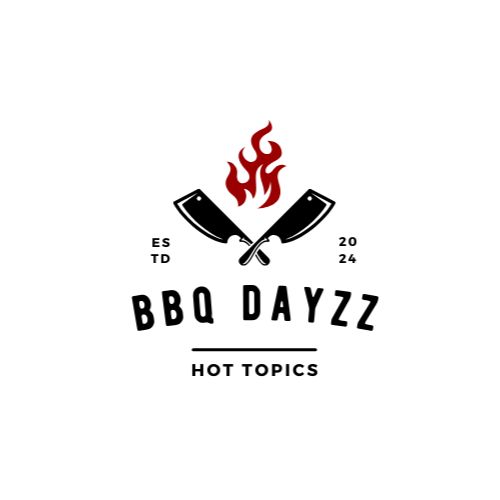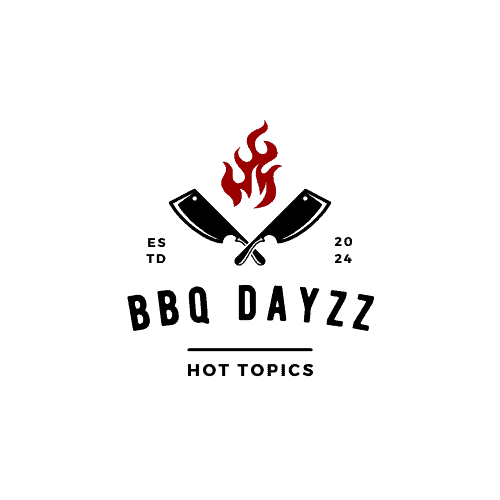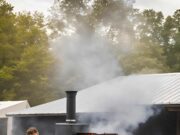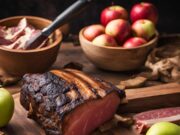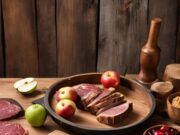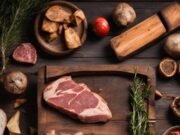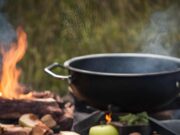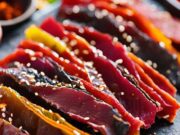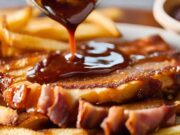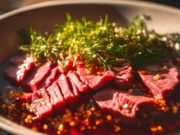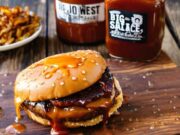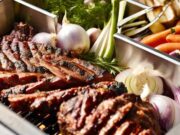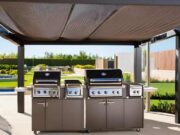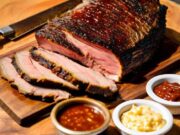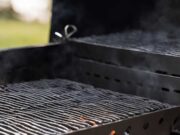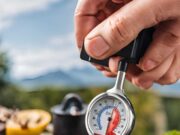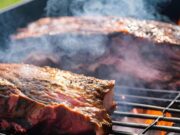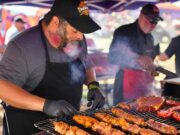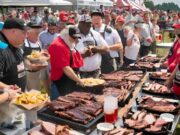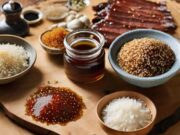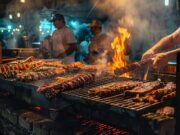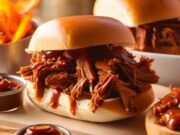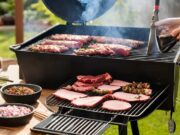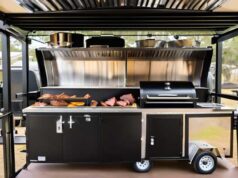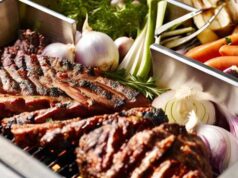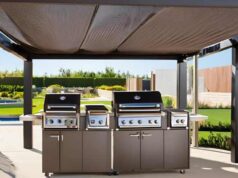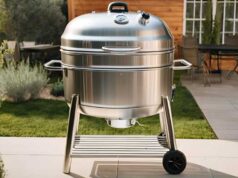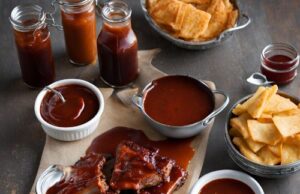- Key Takeaways:
- Grill Maintenance 101: Tools and Tips for a Long-Lasting BBQ
- The Importance of Regular Grill Maintenance
- Essential Tools for Grill Maintenance
- Basic Cleaning Procedures
- Deep Cleaning Your Grill
- Seasonal Maintenance Tips
- Common Grill Issues and Troubleshooting
- Frequently Asked Questions
Grilling season is a cherished time for many, and maintaining your grill is essential to ensure it continues to perform at its best.
This guide provides comprehensive information to help you keep your BBQ in peak condition throughout the year. It covers essential tools, effective cleaning procedures, seasonal maintenance tips, and strategies for troubleshooting common issues.
By following this practical advice, you can significantly extend the life of your grill.
Are you prepared to enhance your grilling experience? Let’s begin.
Key Takeaways:
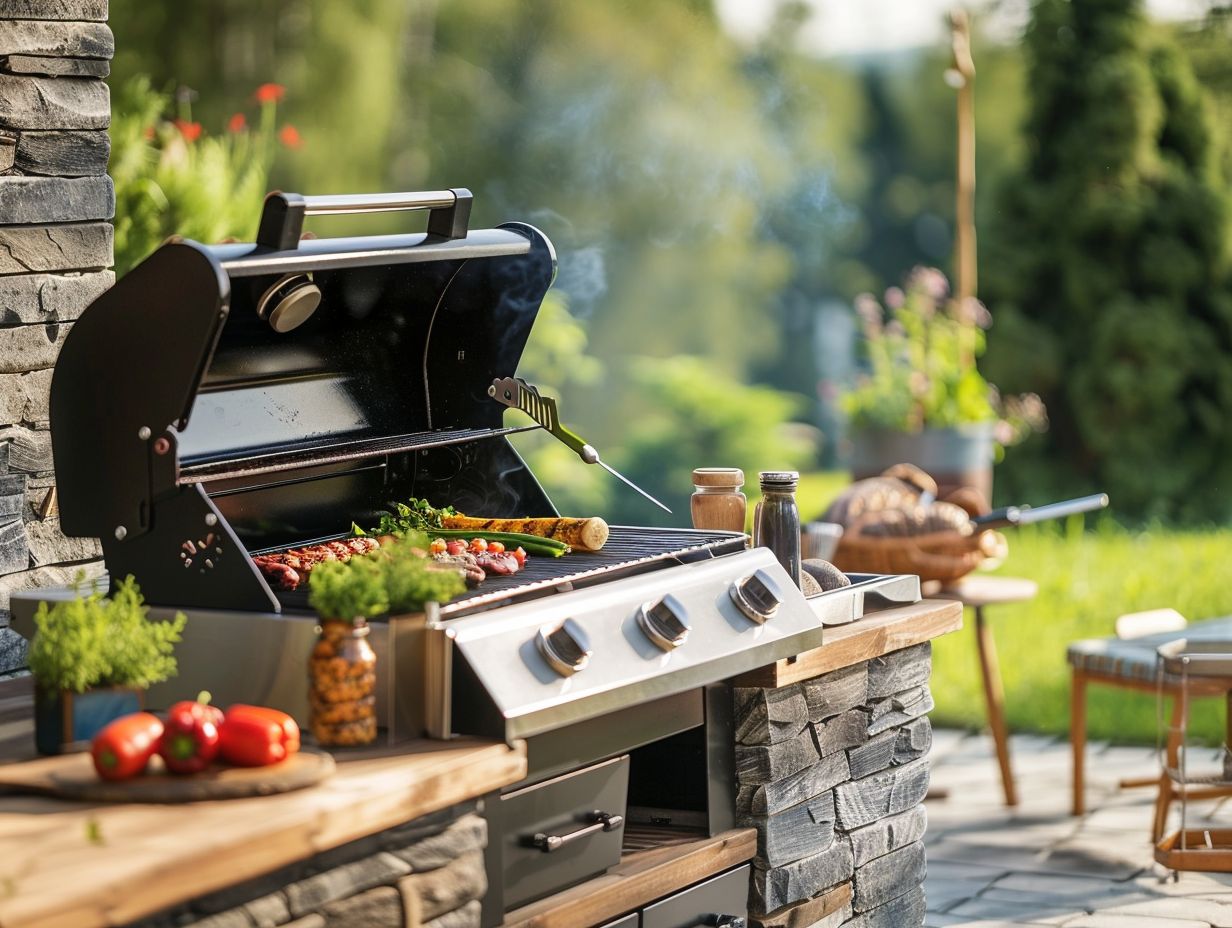
- Regular maintenance is essential for a long-lasting BBQ.
- Basic cleaning tools and procedures are necessary for effective grill maintenance.
- Deep cleaning and seasonal maintenance are important for keeping your grill in top condition.
Grill Maintenance 101: Tools and Tips for a Long-Lasting BBQ
Grill maintenance is essential for ensuring a long-lasting barbecue experience and optimal cooking performance, whether you are using gas or charcoal grills. Regular maintenance not only enhances the flavor of your food but also promotes safety by minimizing the risk of bacteria and grease buildup.
This comprehensive guide will provide you with the best tools and tips for maintaining your grill, ensuring that it remains in top condition throughout the grilling season and beyond.
The Importance of Regular Grill Maintenance
Regular grill maintenance is essential, not only for safety but also for enhancing the flavor of your grilled food. Accumulated grease and debris can harbor bacteria and negatively impact your cooking experience.
Neglecting to clean and maintain your grill can lead to significant health risks, as bacteria such as E. coli or salmonella can thrive in leftover food particles. This not only poses a danger to your guests but can also ruin an otherwise enjoyable meal.
Maintaining a clean grill ensures that your food is cooked evenly, allowing flavors to develop fully without any burnt residue interfering. Experienced grill owners recognize that a well-maintained grill not only improves taste but also enhances the overall grilling experience, fostering memorable outdoor meals with family and friends.
Essential Tools for Grill Maintenance
Having the right tools for grill maintenance is essential for effectively cleaning and preserving the quality of your grill, ensuring optimal performance during every cooking session.
Essential cleaning tools such as wire brushes, scrapers, and microfiber towels are critical in this process. Wire brushes are ideal for tackling stubborn residue and burnt-on food, making it easier for you to restore grill grates to their original state. Scrapers also play a significant role; they help remove grease and debris from both the cooking surface and the exterior of the grill. Meanwhile, microfiber towels provide a gentle yet effective method for wiping down surfaces, ensuring no lint or scratches are left behind.
Utilizing these tools not only guarantees a cleaner grill but also extends its lifespan, significantly enhancing your overall cooking experience.
Basic Cleaning Procedures
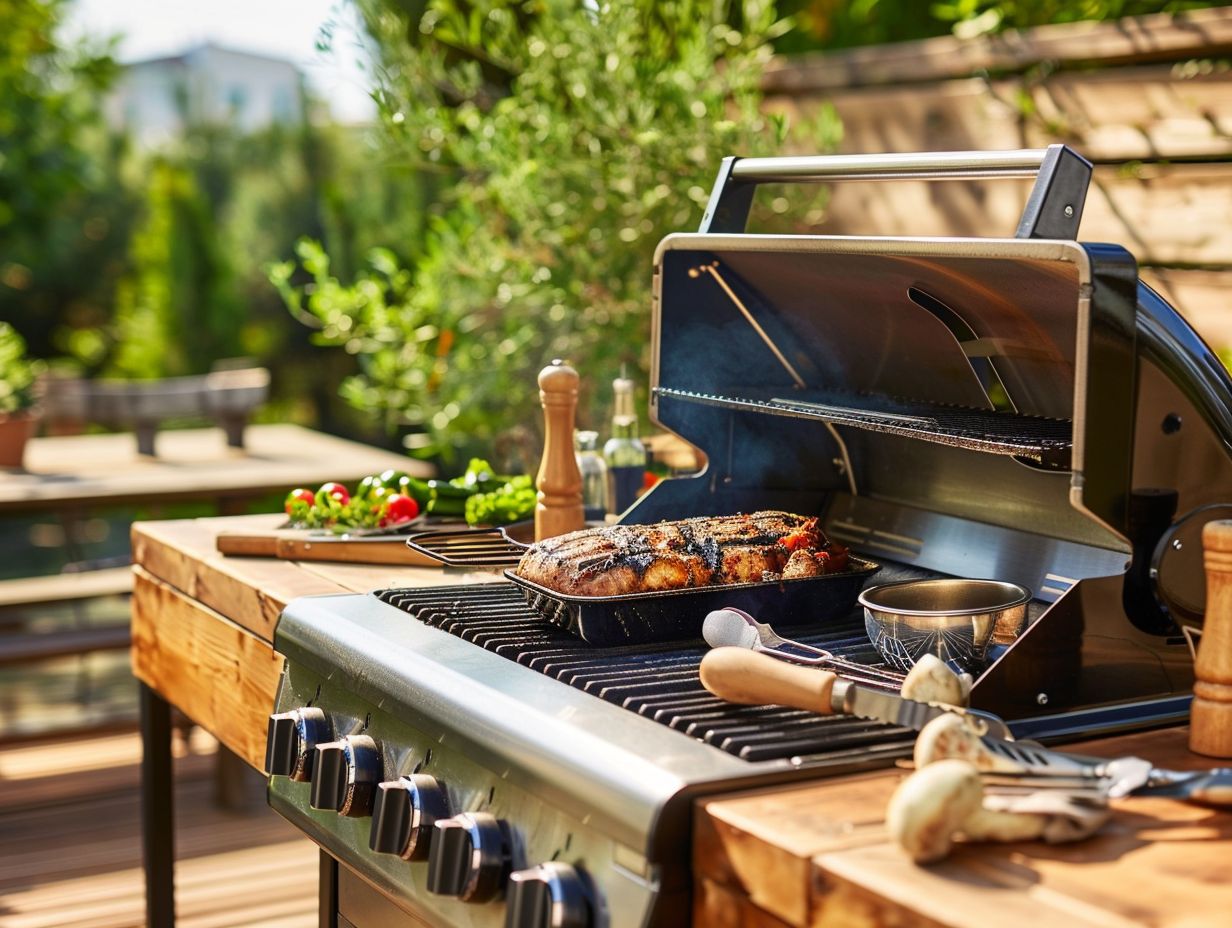
Implementing basic cleaning procedures for your grill is essential for maintaining safety and enhancing the flavor of your food. These practices help remove residues and grease that can accumulate after grilling sessions.
Pre-Grilling Inspection
Conducting a pre-grilling inspection is an essential step in grill maintenance, ensuring that everything from the burner tubes to the cooking grates is clean and functioning properly for a safe grilling experience.
Neglecting this crucial process can lead to uneven cooking or even dangerous flare-ups, which pose significant safety risks. Begin by closely examining the burner tubes for any signs of blockages or corrosion that might impede gas flow, as these issues can compromise the grill’s efficiency.
It is also vital to inspect the cooking grates for any buildup of grease or food residues; a clean surface promotes better heat retention and flavor transfer. Taking the time to perform this thorough check not only enhances your cooking outcomes but also prolongs the life of your grill, making regular maintenance a key element of successful outdoor cooking.
Post-Grilling Cleaning Routine
Implementing a post-grilling cleaning routine is essential for maintaining your grill’s performance, as it helps eliminate grease and residue that can impact both flavor and safety during future grilling sessions.
By establishing a consistent practice of cleaning your grill after each use, you can ensure that it operates efficiently and has a longer lifespan. Start by preheating the grill for about 15 minutes; this will assist in loosening any stubborn food particles. Once heated, use a stiff wire brush to thoroughly scrape down the grates, making sure all remnants are removed.
Next, detach and clean the drip pan, which collects excess grease and helps prevent flare-ups. It is also advisable to wipe down the exterior with an appropriate cleaner to maintain its appearance.
By taking these steps, you will not only enhance grilling safety but also improve the overall taste of your meals.
Deep Cleaning Your Grill
Deep cleaning your grill is an essential maintenance task that extends beyond basic cleaning. It effectively addresses the buildup of grease and charred debris that accumulates in the internal components, ensuring optimal performance.
Step-by-Step Cleaning Process
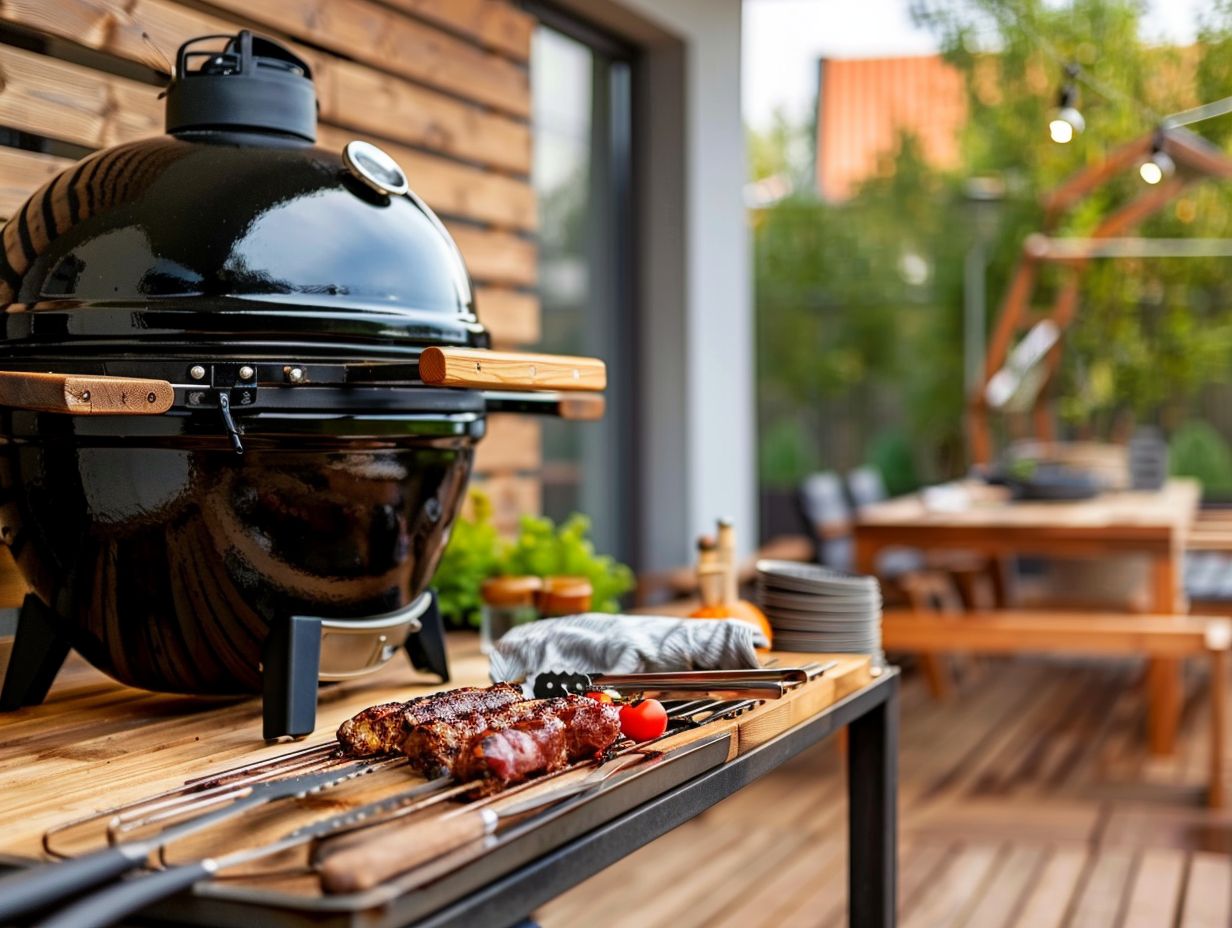
Implementing a step-by-step cleaning process for your grill ensures that no corner is overlooked, allowing you to effectively remove grease and residue and maintain your grill in optimal condition. For more tips on grill maintenance, check out this Grill Maintenance 101: Tools and Tips for a Long-Lasting BBQ.
This methodical approach not only prolongs the life of the grill but also enhances the flavor of your food, as a clean grill prevents the transfer of old flavors and odors. To begin, gather essential tools such as:
- A grill brush with stainless steel bristles
- Soapy water
- A bucket
- Sponges
- A scraper for stubborn debris
Additionally, using heat-resistant gloves and a protective mask can enhance safety during the cleaning process. Taking the time to carefully inspect each part of the grill, from grates to burners, emphasizes diligence and care, facilitating an effective deep clean.
Seasonal Maintenance Tips
Seasonal maintenance tips are essential for ensuring that your grill remains in excellent working condition throughout the year. Each season presents unique challenges for both gas and charcoal grills, and addressing these challenges proactively can make a significant difference.
By taking proactive steps during each season, you can prevent rust, clogs, and other wear that may hinder performance. For example, winterizing your grill entails thorough cleaning, covering it to protect against harsh elements, and disconnecting propane tanks from gas grills to mitigate the risk of potential leaks.
As spring approaches, this is an ideal time to conduct a detailed inspection and deep clean, preparing the grill for the upcoming grilling season. When summer arrives, make sure to check the burners, inspect the ignition systems, and ensure that smoke boxes are clear, allowing for a seamless cooking experience and enjoyable outdoor gatherings.
Common Grill Issues and Troubleshooting
Understanding common grill issues and troubleshooting techniques can save you time and enhance your grilling experience, allowing you to spend less time addressing problems and more time savoring delicious food.
It is essential for any grill owner to familiarize themselves with these challenges, which can range from uneven heat distribution to clogged burners and grease buildup. By learning to quickly identify these issues, you can easily take the necessary cleaning and maintenance steps, such as regularly inspecting and cleaning the grill grates or ensuring proper airflow by checking for blockages.
Implementing these simple yet effective practices will not only help prolong the life of your equipment but also ensure that your meals are cooked evenly and tastefully, creating a more enjoyable outdoor cooking experience.
Frequently Asked Questions
What are the essential tools for grill maintenance?
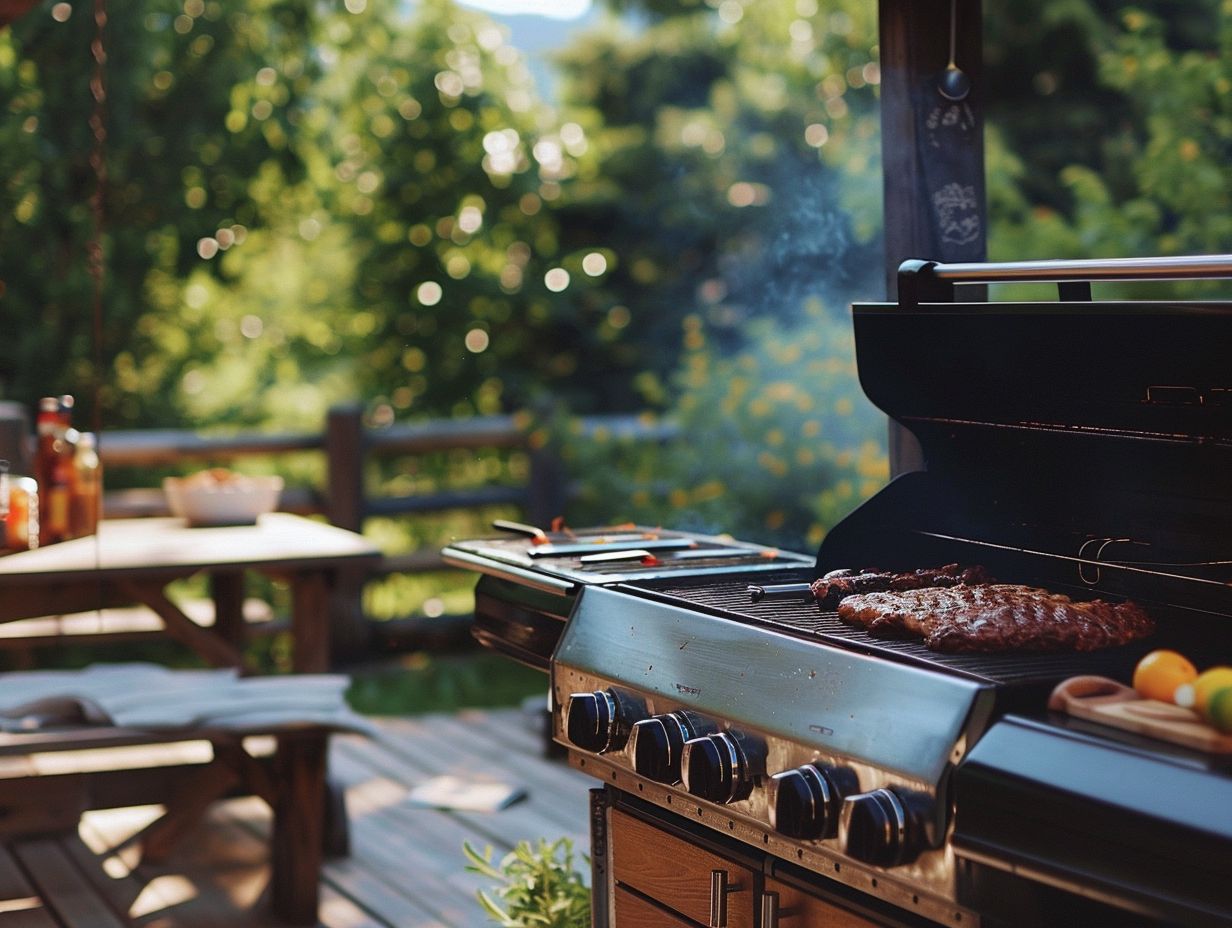
The essential tools for grill maintenance include a wire brush, grill scraper, tongs, grilling gloves, and a grill cover. These tools will help you keep your grill clean and in good condition, ensuring a long-lasting BBQ experience.
How often should I clean my grill?
Ideally, you should clean your grill after every use. This will prevent build-up of grease and food particles, which can lead to flare-ups and affect the taste of your food. Regular cleaning also extends the lifespan of your grill.
Do I need to season my grill?
Yes, it is recommended to season your grill before its first use and periodically throughout its use. Seasoning helps create a non-stick surface, prevents rusting, and enhances the flavor of your food.
What should I do if my grill has rust?
If you notice rust on your grill, use a wire brush or sandpaper to remove it. Then, clean and dry the affected area before applying a layer of high-heat paint. Regularly seasoning your grill can also prevent rust from forming.
How do I prevent flare-ups while grilling?
To prevent flare-ups, make sure to clean your grill before and after use, and trim excess fat from meats. You can also control the temperature by adjusting the air vents and keeping a spray bottle of water nearby to extinguish any flames.
Should I cover my grill when not in use?
Yes, covering your grill when not in use helps protect it from the elements and prevents rusting. Make sure to use a cover specifically designed for your grill model and allow the grill to cool completely before covering it.
